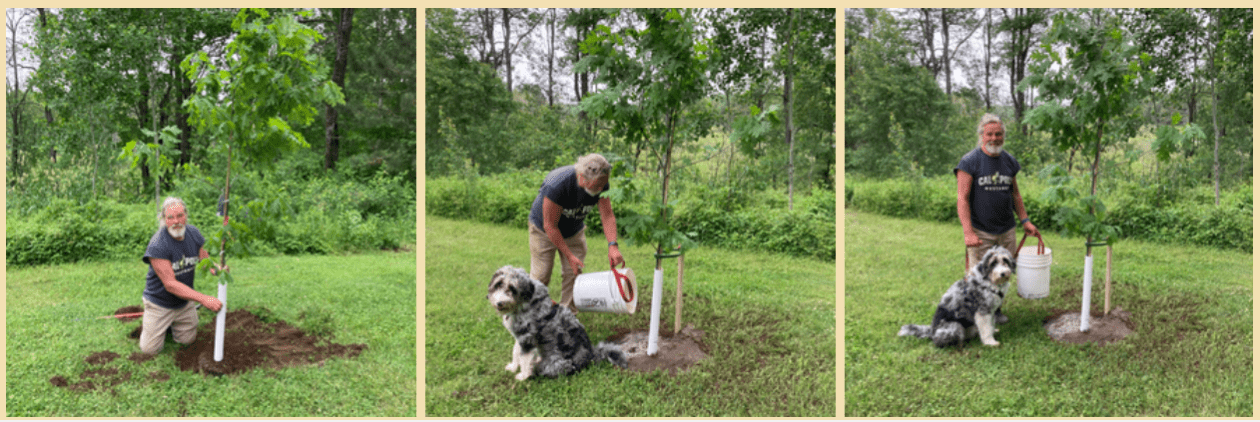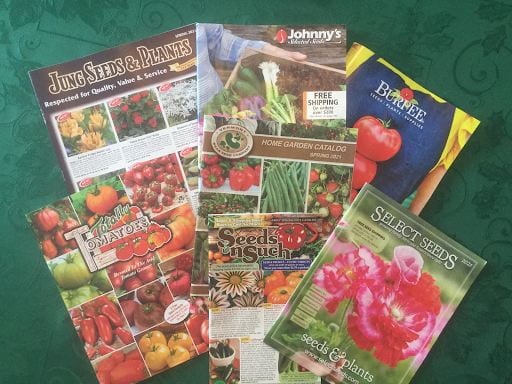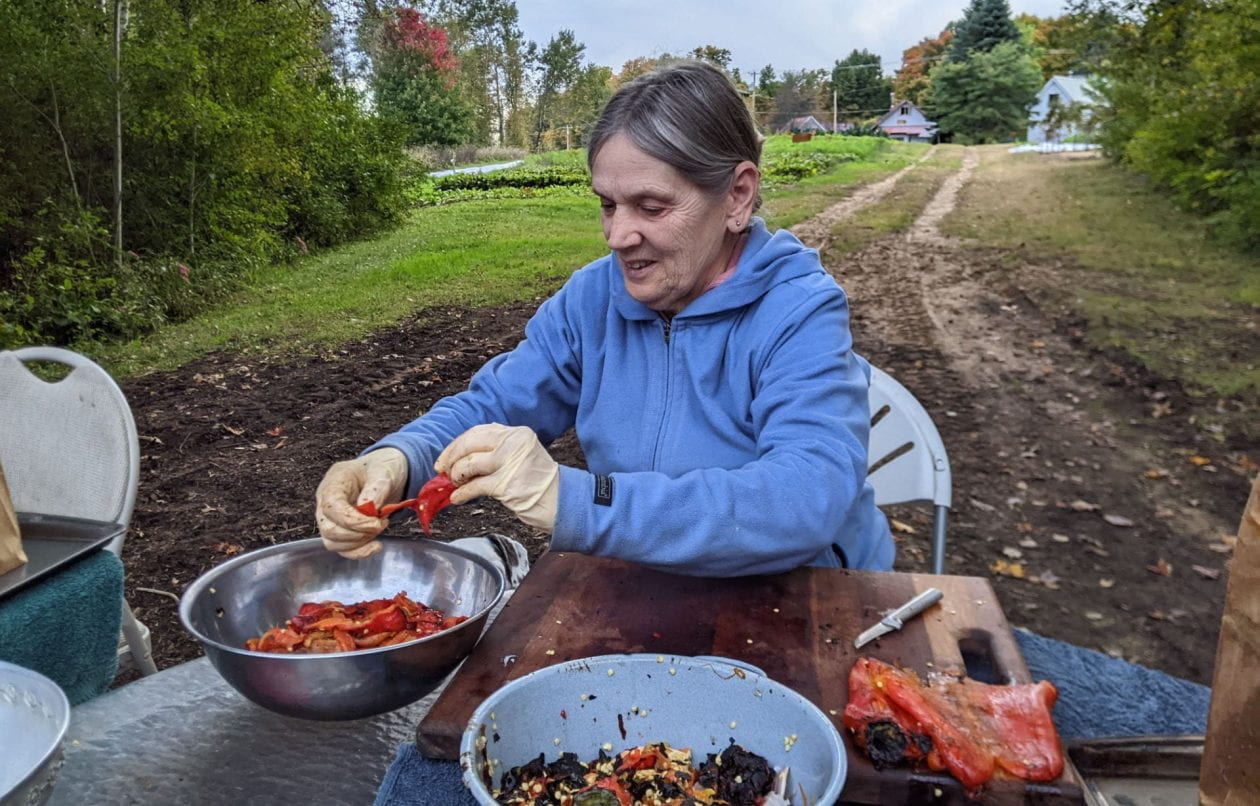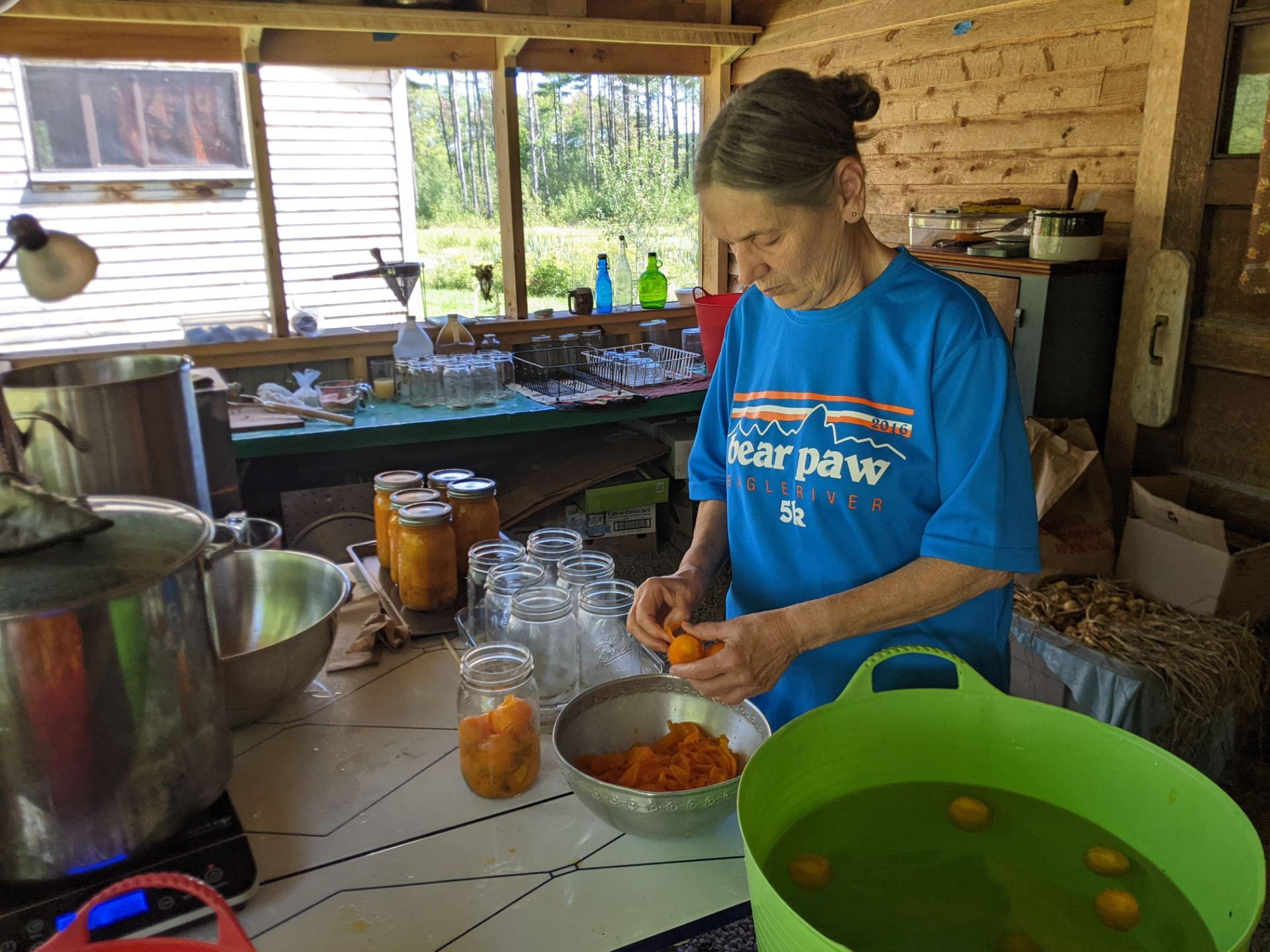With a new cohort of Master Gardener Volunteers beginning to serve their community, we’d like to introduce them (AND YOU!) to the group of MGVs who have sustained this program for the last several years. Meet Matthew Carney!
What sparked your interest in gardening, and what has sustained it?
Inspired by my father, I began gardening from a very young age and continued to do so as a college student and a Peace Corp Volunteer. While agriculture was not my main focus, my vegetable garden in Tonga became a source of interest for many and an inspiration for some during my years as a Peace Corp Volunteer. My Tongan friends and neighbors were surprised that luxuries such as tomatoes, peppers and squash etc. could be grown locally.
More recently, my wife Linda and I began the Peacock & Pony Farm where we sell and share our produce and flowers. We have also created and nurtured several perennial gardens at the Baker Woods Preserve (BWP) in Natural Bridge where we are the primary stewards.
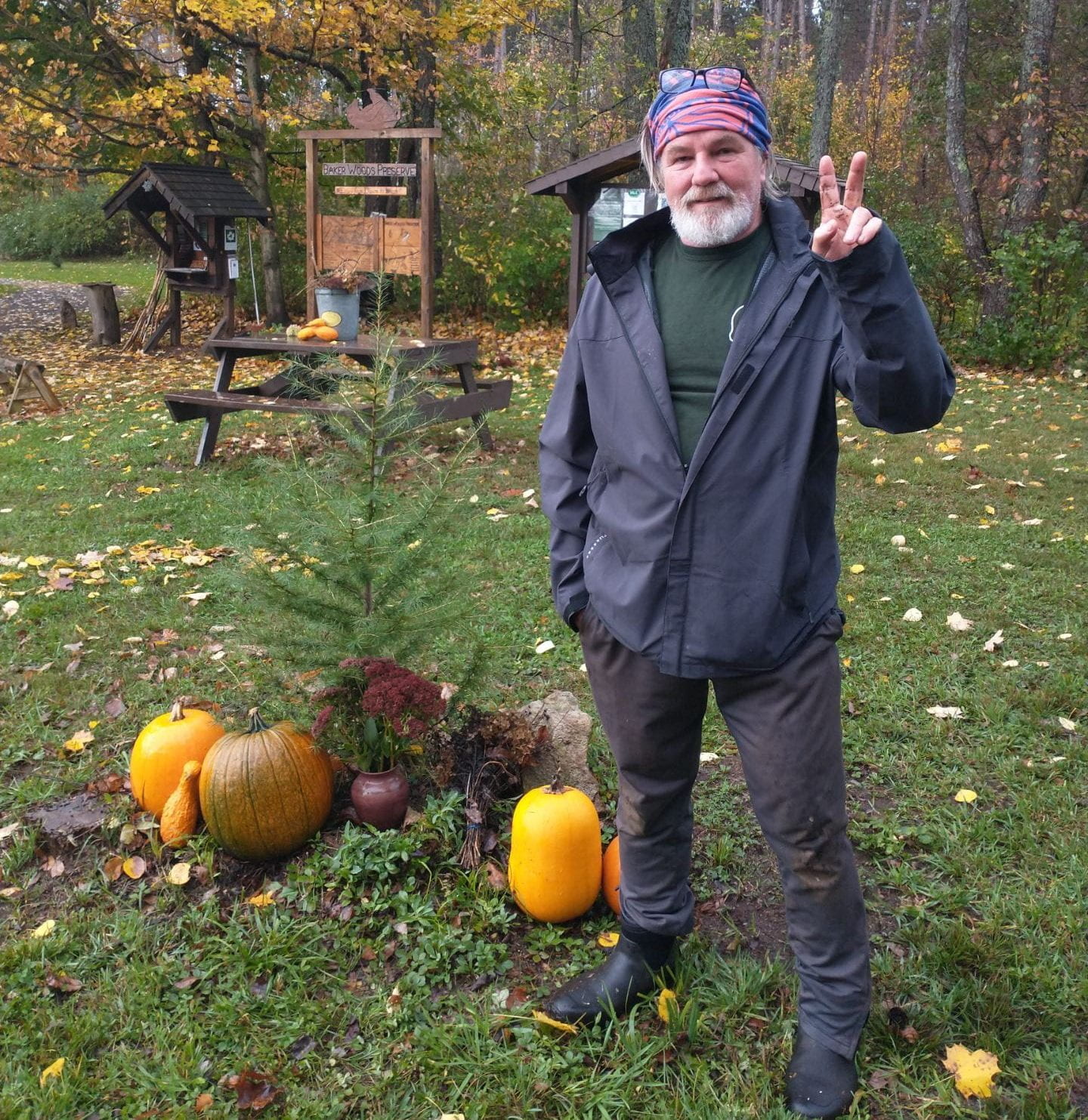
What benefits do you gain from gardening?
We enjoy the fruits of our labor. Nothing tastes as satisfying as home grown veggies and nothing satisfies my sense of aesthetics and environmental ethics more than our many perennial pollinator gardens. As a Master Gardener Volunteer, I continue to learn and to share knowledge and insight with fellow gardeners and conservationists.
How do you serve as a MGV?
Most significantly, I interact almost daily with visitors to the Baker Woods Preserve and enjoy sharing my knowledge of trees, shrubs, plants and perennials, both wild and cultivated, with individuals and groups of all ages. Read more Meet Matthew Carney, Master Gardener Volunteer
